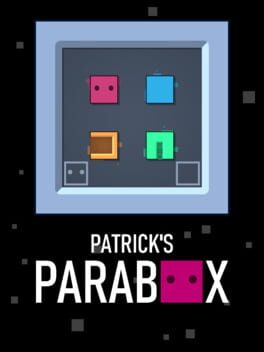

A mind-bending recursive puzzle game about boxes within boxes within boxes within boxes. Learn to use infinity to your advantage as you explore a deep and elegant system.
Released on
Genres
Reviews View More
PP es de los mejores juegos de puzzles que jugué nunca. La inmensidad de puzzles que se pueden crear con mecánicas tan bien definidas y la locura que se puede orientar gracias a la programación, es algo que debería asombrar a todo el mundo. Super recomendado que lo pruebes, sus conceptos y niveles en si son una locura. Y te vas a quedar “trabado” (tranquilo, puedes dejar un puzzle y hacer otro) pero al final vas a entender la mecánica de la zona. Simplemente, una muy buena forma de definir que es un puzzle.
Recomendado. ✔
Recomendado. ✔
It's not the hardest puzzle game I've bashed my way through, but it's one of the few where I was able to work my way through every challenge, where I was confused, stuck, and frustrated for quite some time on some of them, but never once needed to resort to an outside hint, nor did I ever unintuitively solve a puzzle and think, "Well, never would have figured that one out," and so, Patrick's Parabox sits in absolutely rarified air.
Patrick's Parabox (2022): La mejor paracaja desde la de Farnsworth. En general un juego muy divertido y satisfactorio, aunque acercándose al final puedas resolver muchos de sus puzzles mediante ensayo y error sin terminar de entenderlos del todo. Aún así, una breve y satisfactoria experiencia (7,40)
Brilliant, creative, clever, mind-bending, and cute. Parabox is somewhat similar to Baba is You (which is also an amazing game), but to me, it seems significantly more balanced in terms of difficulty level (i.e., less frustrating). The game gently introduces each new mechanic, and there is a smooth progression in terms of complexity, creating a nice gameplay flow.
Some levels made me go “Whoa” or laugh out loud because of how ridiculous they looked at first, but not even once did I feel completely lost.
Strongly recommended.
Some levels made me go “Whoa” or laugh out loud because of how ridiculous they looked at first, but not even once did I feel completely lost.
Strongly recommended.
